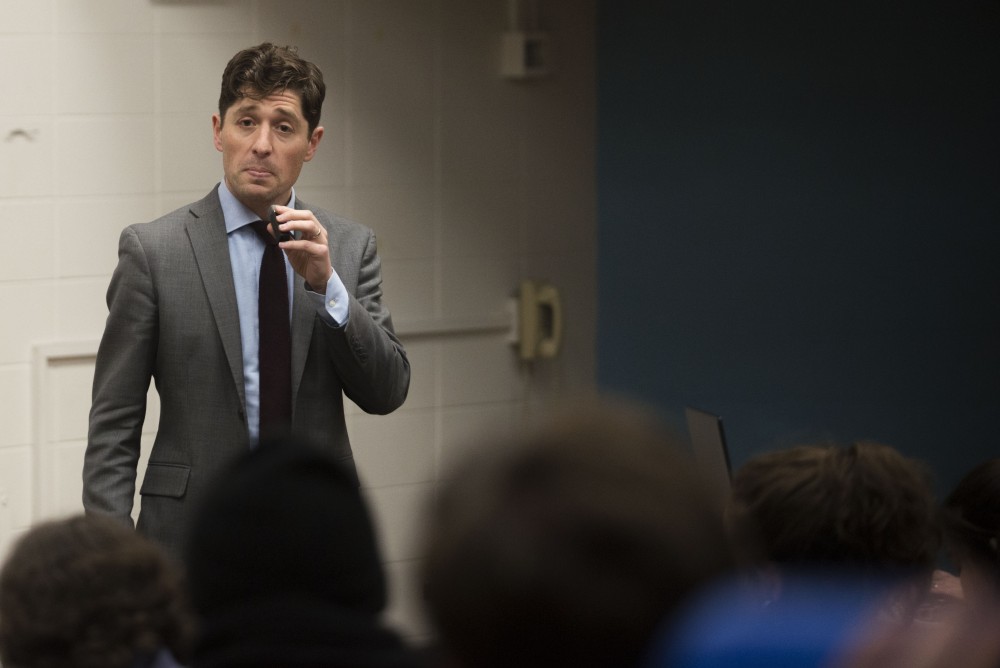University of Minnesota medical providers and other community members helped shape City of Minneapolis recommendations to address opioid use.
The recommendations, which aim to address cultural and economic barriers to opioid treatment, are the culmination of a months-long effort by an opioid task force established by Minneapolis Mayor Jacob Frey. The recommendations were released earlier this month. They propose a comprehensive approach that shifts action on opioid abuse to the city level.
Federal and state governments and nonprofits have traditionally addressed opioid abuse. But due to the extent of the epidemic in Minneapolis, Frey said City and community leaders need to get involved.
“The City of Minneapolis is coming off the sidelines because the scope of this public health emergency requires an all-hands-on-deck response,” Frey said.
The recommendations cover multiple aspects of opioid abuse, including suggestions that the City fund opioid education and prevention programs, improve affordable housing for opioid users and add drug enforcement officers to prevent drug deals.
Ryan Kelly, assistant professor in the University’s Division of Internal Medicine, chaired the task force’s Community Systems Integration subcommittee. He said the range of task force members, which includes doctors, policy makers and people who run opioid treatment facilities, will help make the recommendations more effective.
“One of the great things about this task force was that it brought together people from all different environments who don’t always cross paths,” Kelly said. “That was one of the most rewarding experiences for me … working with people who are more familiar with … the reality that the people I see in front of me in the hospital or clinic face.”
Kelly said he supported the recommendations’ focus on barriers to treatment, including housing and transportation.
“If you don’t have stable housing and you don’t have transportation, making it on time to a clinic appointment is not reality,” Kelly said.
Some of the recommendations focused on cultural considerations in treatment and care. Representatives from the Minneapolis American Indian Center, like Laura Newton, the center’s program director of the Indian Child Welfare Act Program, helped develop culturally informed treatment options.
Newton, who co-chaired the Child Protection and Criminal Justice subcommittee, said families and children can be overlooked when treating people for opioid addiction.
“There are folks that are struggling with opioid use … and because of that it impacts not just their children, but their whole families,” Newton said. “That’s one of the hardest things about the opioid crisis is that it impacts so many other family members.”
Newton said the recommendations will need support and funding from City officials to effectively address the ongoing opioid crisis.
Going forward, Frey said he hopes to use the recommendations to shape City priorities and set goals. The task force members will maintain an advisory role with the City, making adjustments to current recommendations as needs change, Frey said.
“Almost all policy shifts over time depending on the need. A policy that is inflexible to reality is not a good policy, so I fully expect there to be improvements over time based on what we’re seeing on the ground,” Frey said.








